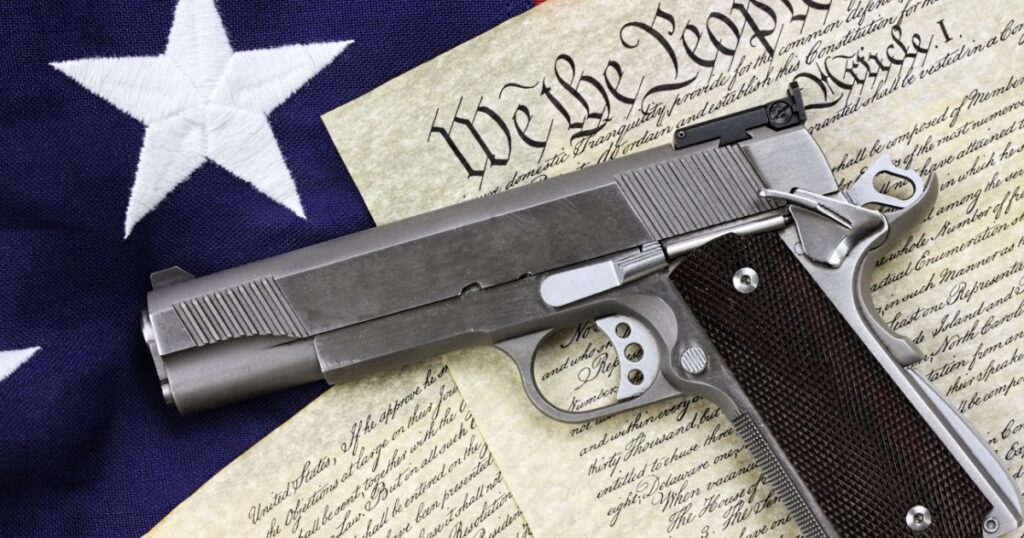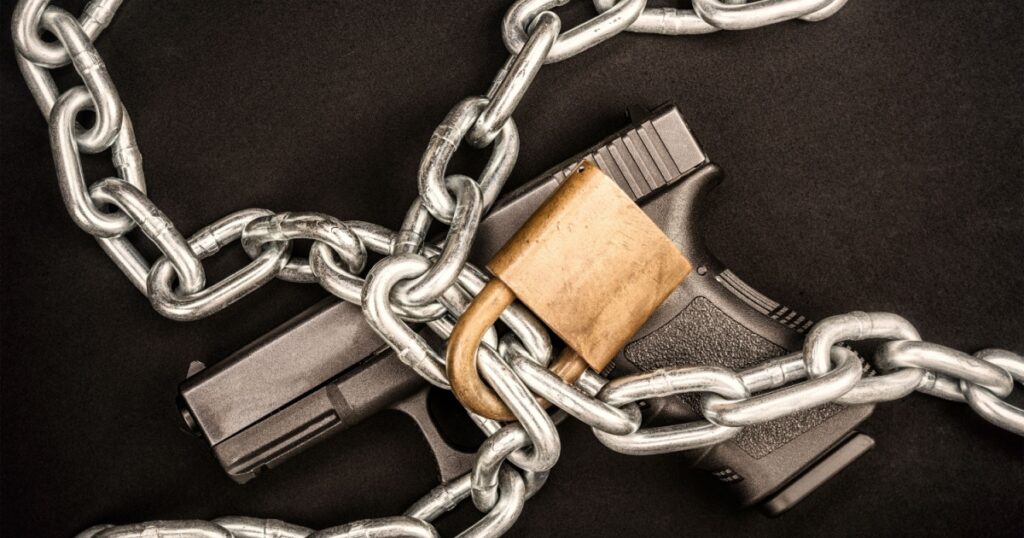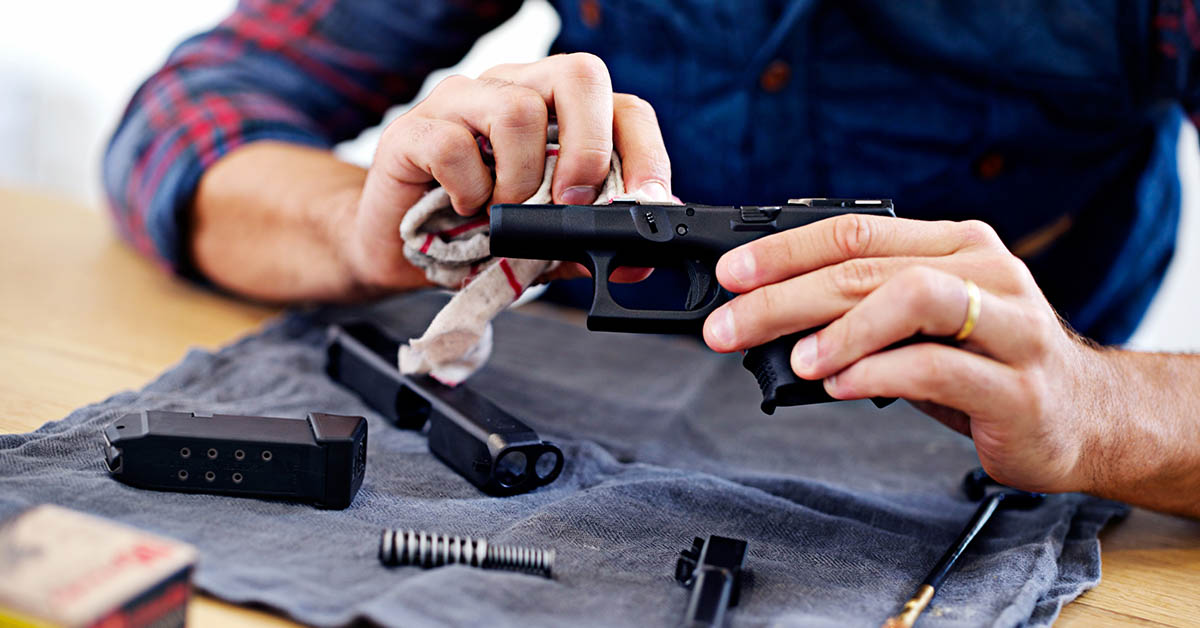In recent news, the issue of doctors asking patients about gun ownership has come to the forefront. While this topic isn’t new, it has recently resurfaced in an April 1st article in The Atlantic. As early as 2018, discussions were already taking place on this matter, with people on both sides of the issue making their voices heard. (1)
This newly regained spotlight on the topic raises the issue of whether doctors should ask their patients about gun ownership. This policy has stirred controversy, with opinions divided on the matter. To better understand the complexities of this controversial issue, let’s explore both sides of this story.
Read More: How Doctors Rescued a 1.1 Pound Premature Baby with a Sandwich Bag
Gun Safety: Why Can The Doctor Ask About Your Gun?

The practice of healthcare providers inquiring about gun ownership has generated significant debate. This has its origins in the issue of public health and safety. Advocates of this practice argue that knowing whether a patient has access to firearms can provide crucial information for doctors to address potential health risks. This stance is supported by the American Medical Association, which advocates for doctors to have the freedom to discuss gun safety with their patients.
The Argument For It

Proponents of doctors asking patients about gun ownership argue that it is a crucial component of preventive medicine. They posit that, much like asking about smoking, alcohol consumption, or seat belt use, inquiring about gun ownership can help identify potential risks and prevent injury. By discussing gun safety with patients, doctors can potentially reduce the risk of firearm-related injuries, particularly in cases involving children or individuals with mental health challenges. For example, if you go to the doctor about a sore shoulder or twisted ankle, they will ask their standard routine questions about your general health.
However, they may also ask you if you have any firearms at home. If you say yes, they will talk to you about gun safety and the importance of keeping your gun locked away and give you a padlock and a pamphlet on proper gun safety and storage. All of this is to avoid what many are calling a firearms injury epidemic in America – in reference to the shocking quantity of injuries (or worse) caused by firearms in the country. Additionally, supporters argue that the doctor-patient relationship is based on trust and open communication. Therefore, inquiring about gun ownership can be seen as part of a broader effort to address all factors that may impact a patient’s health and safety.
The Argument Against

Conversely, opponents of this practice perceive it as an intrusion into personal privacy and a potential threat to Second Amendment rights. They argue that inquiring about gun ownership is beyond the scope of a physician’s role and may lead to biased treatment. Furthermore, they contend that it may create a barrier to honest communication between patients and healthcare providers, especially among individuals who fear their responses could be used against them. (2) Critics also express concerns that documentation of gun ownership in medical records could have negative implications, such as affecting one’s ability to obtain firearms or impacting insurance coverage. There is also the fear that it may potentially stigmatize gun owners and deter individuals from seeking healthcare, consequently compromising their overall well-being.
Read More: At 101, The ‘World’s Oldest Doctor’ Has One Rule to Keep Your Brain Sharp
Medical Conditions That May Make Gun Ownership Dangerous for You and Your Family

In the course of healthcare assessments, there are medical conditions that may raise concerns about gun ownership. Patients with certain mental health conditions or those at risk of cognitive decline could unintentionally pose dangers to themselves and others if firearms are present in their household. Additionally, certain neurological conditions and physical limitations could raise questions about the safe handling and storing of firearms, potentially increasing the risk of accidents. The big debate, however, is whether or not this conversation is within a medical doctor’s jurisdiction. Yet again, the debate over Second Amendment rights in America rages on.
The Bottom Line

The issue of doctors asking patients about gun ownership remains a contentious and complex matter. Straddling the delicate balance between medical care and personal rights, the debate requires thoughtful consideration of potential benefits and risks. While proponents emphasize the potential for reducing firearm-related injuries and promoting overall safety, opponents stress the importance of protecting patient privacy and upholding Second Amendment rights. As the discussion continues, seeking a balance that respects both patient autonomy and public health concerns will be crucial in addressing this polarizing issue.
Read More: Doctor Learns That Money Can’t Buy Happiness and Wants You To Learn, Too
Sources
- “The Doctor Will Ask About Your Gun Now.” The Atlantic. Nancy Walecki. April 1, 2024.
- “Is There a Doctor in the House, and Is He Asking About Your Guns?” Ammoland. Dave Workman. April 5, 2024.

